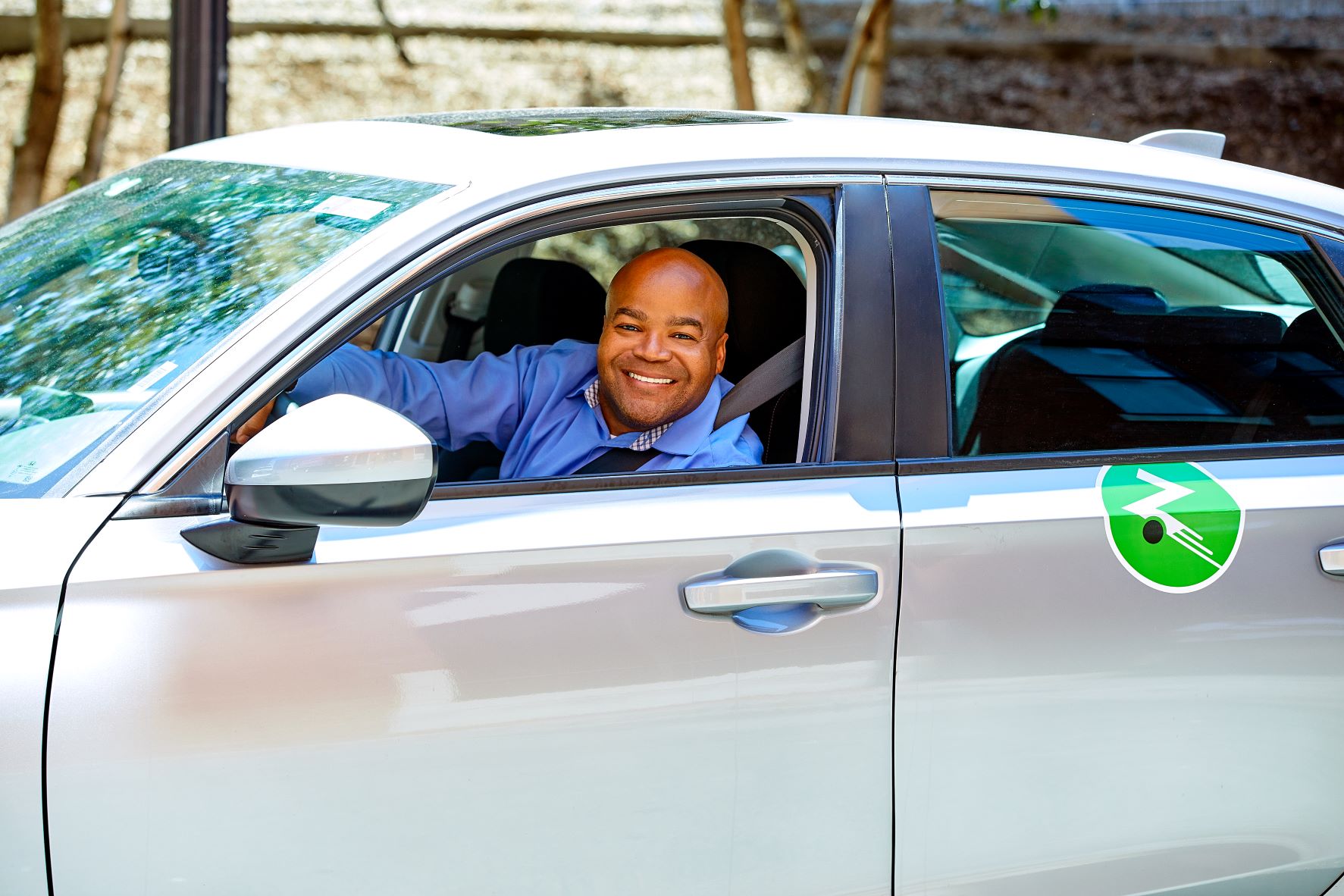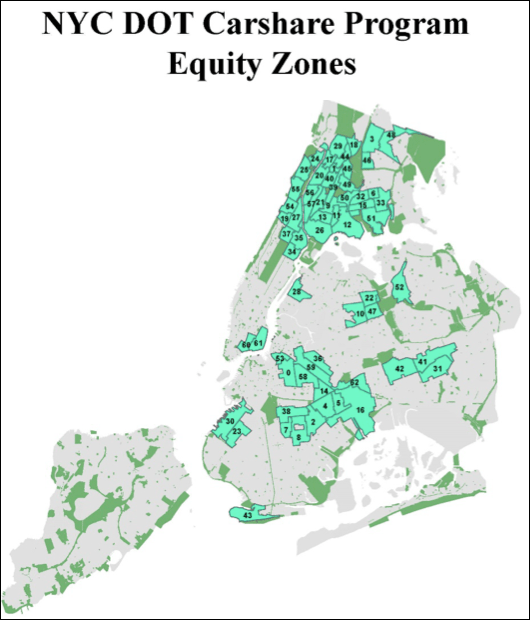
He’s Zip-ing into the future of cars in the city.
As the city hopes to reduce its dependence on private automobiles in order to cut back on congestion, emissions and traffic violence, it’s also looking to expand its carshare program — the ability to rent a car for an hourly rate to run errands, visit friends or family, or take a trip, without the onerous cost of owning one.
Following a 14-neighborhood, four-year pilot, the Department of Transportation this past summer set its rules and agenda for a permanent citywide program, inviting carshare companies to apply. One participating company is the Boston-based Zipcar, which has been operating in the city since 2001.
Besides Zipcar, there are only two other companies operating in the city. And just 230 curbside spaces for cars are part of the program exist currently. There is no set number of spaces that must be allocated in any given community, but 20 percent must be located within what’s called Tier 1 Priority Investment Areas as designated in the city’s Streets Master Plan, otherwise known as equity zones, which are typically undeserved by transit options and home to a large number of low-income residents. The DOT is currently in the site review and outreach process of the program, and expects to have cars on the street soon, according to an agency spokesperson.
Streetsblog talked with the new head of Zipcar, Angelo Adams, to discuss its success in the city and plans for expansion with a focus around equity and reducing congestion — and how it responds to backlash from car zealots territorial over public street space.
Zipcar, which offers $9 monthly and $90 annual memberships, as well as discounts to NYCHA residents and trips starting at about $11 an hour, now has more than 2,500 vehicles in New York City, including more than 60 makes and models at more than 600 different locations, according to Adams. He says that 85 percent of its members in the city do not own a car, and that 25 percent of its city members got rid of their car after joining Zipcar, according to its survey, saving more than $700 a month in costs associated with owning a vehicle.
Here’s what Adams had to say on Zipcar’s operations. (This interview has been edited for length and clarity.)
Julianne Cuba: How is Zipcar doing in New York City, and how and where does it see itself growing and expanding?
Angelo Adams: Some of the most successful areas in our pilot were those that were underserved previously by car sharing, such as the Bronx and outer Queens. Particularly in these two boroughs what we saw were the highest performing on-street zones and municipal parking facilities. In the Bronx, our Zipcars are utilized on average by 40 households per month, about 10 hours per trip, which allows members to run errands, visit family and friends, attend appointments, etc. And for us, where we’re going is through our partnerships, we’re looking to put our vehicles in broader places, more diverse locations and neighborhoods across all five boroughs.
JC: How do you ensure that spaces are distributed equitably throughout the city and in neighborhoods that need it most?
AA: The criteria is that they give us a set number of parking spaces in which to sort of bid against and then what we do is we see where we have demand. Based on that, the requirement is that 20 percent of the requests you put in need to be in what they consider equity zones — that’s described by DOT. But our percentage is significantly higher than 20 percent, where we decide to put our vehicles in equity zones.
So for us, it’s all about providing New York and its residents with convenient, affordable mobile alternatives to diverse low-income and moderate-income neighborhoods across the city.
When we surveyed some of our car share members we learned that 56 percent of our low-income New York City members say that Zipcar gives them an opportunity equal to others. And then 68 percent of our BIPOC members say their quality of life improved actually after joining Zipcar.
JC: How does a carshare system like Zipcar work to combat congestion and reduce emissions?
AA: Our mission is to enable responsible urban living and we do that by reducing congestion.
For every one Zipcar, that removes (up to) 13 personally owned cars off the street. It also reduces emissions and reduces congestion and increases the space that people have available because it reduces parking spaces.
We have three basic pillars: sustained mobility, it’s providing a more sustainable mobile future so moving away from car ownership and towards a shared mobile solution that reduces the number of vehicles on the road. The second is access, access without ownership. So when I think about ownership, we have to deliver a solution to our members that gives you on demand access seamlessly without the financial burden and mental worry of owning a car. And the third is easy escapes.
JC: How do you respond to community board members who don’t want “their parking” taken away?
AA: We have representatives that attend the meetings. Our stance, our shared goal, between us, DOT, and also the community, is for car sharing to remove the need for these personally owned vehicles parked on the street, which would reduce the need to compete for parking. We never add cars to streets without demand and without a conversation with the DOT on where we should put these cars. When we go, it’s more about how we have a shared solution with the community to reduce the number of personally owned cars on the road because ultimately that’s our goal — to reduce personally owned cars so you can reduce congestion, reduce emissions, and increase the use of spaces that people have in the city for things that they love to do.








